Latest Entries Journal of Nursing
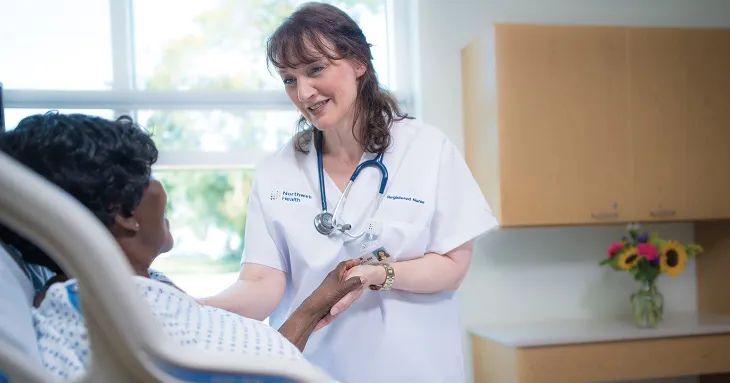
Orthodox Jewish Medical Beliefs and Practices
Tags: culture diversity ethical values nursing education
his article provides an overview of Orthodox Jewish medical beliefs and practices. It emphasizes how the Orthodox faith influences healthcare decisions. The article explains key pracitices such as observance of the Sabbath, daily prayer routines, and strict modesty may affect patient care. Overall, this article stresses that healthcare providers should respect and accomadate Orthodox Jewish traditions and how their faith guides every decision.
Read More →
Impact of Stress and Lifestyle on Cardiac Health in College Students
Tags: cardiac health cardiovascular disease nurse well-being Nursing Initiative nursing students Stress among Nurses Young People
This article explores how stress and lifestyle habits influence cardiac health in college students. It emphasizes the role of nurses in promoting heart-healthy practices and managing stress. Observations suggest that irregular meals, sedentary routines, and late-night study patterns increase cardiovascular risk.
Read More →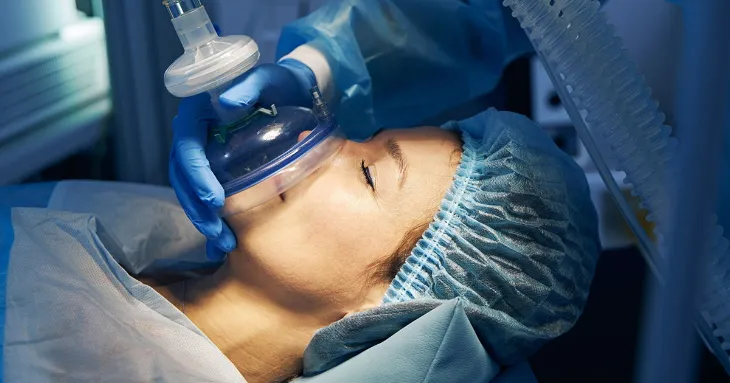
The Unmeasured Discomfort: Shivering in PACU and The Use of a Bedside Shivering Assessment Scale
Tags: anesthesia Hypothermia nurse training Post-Anesthesia Care Surgical Recovery
Postoperative shivering is a common complication of general anesthesia. This can cause patient pain, distress, and hemodynamic changes. Nurses should use a BSAS to assess the severity of shivering and take appropriate interventions to minimize this with pharmacological and non-pharmacological methods.
Read More →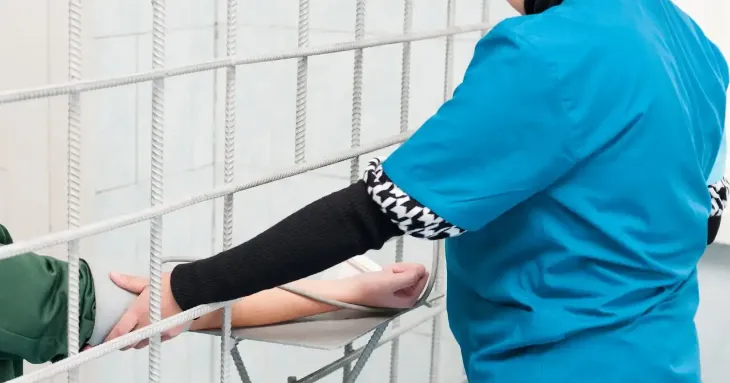
The House of the Least of These
Tags: compassion ethical principles in nursing trauma
This is a brief article about the impact of advocating for your patients in a correctional facility.
Read More →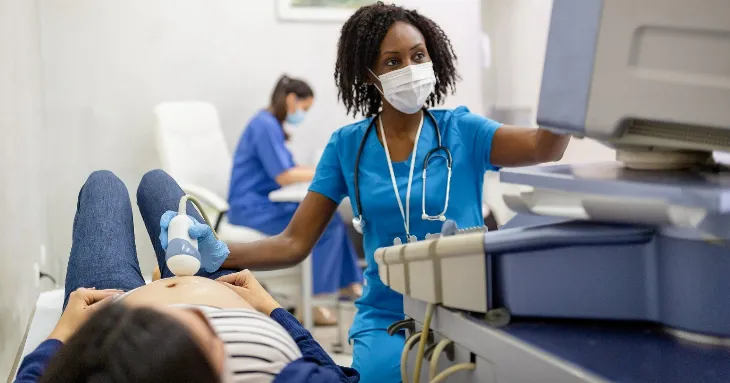
Evidence Based Practice - Ultrasound Guided Peripheral IV Placement
Tags: catheters clinical nurse critical care Emergency nurse patient safety
This study aims to show that nurse driven placement of ultrasound guided peripheral intravenous access in the emergency department will improve patient care.
Read More →
Nurse Burnout: Am I the Only One?
Tags: nurse burnout nurse mental health nurse well-being self care wellbeing
A poetic piece on burnout in nursing with a positive note added.
Read More →
The Vagina :Bringing the Vagina Back to Life After Menopause Non-Hormonal Treatment Approaches for Atrophic Vaginitis and Chronic UTIs in Estrogen-Restricted Women In honor of the women who have suffered in silence
This paper is dedicated to the many women I have had the privilege of treating for atrophic vaginitis during menopause. Atrophic vaginitis—characterized by vaginal dryness, tissue thinning, and the involution of the vagina, labia, and urethra—is primarily caused by estrogen deficiency. I reflect on the voices of women whose needs have been unmet due to contraindications for estrogen therapy, often stemming from a history of cancer or other medical concerns. This work seeks to explore evidence-based, non-hormonal alternatives to manage atrophic vaginitis in menopausal women who cannot undergo estrogen therapy. Atrophic vaginitis does not affect the vagina alone—it also compromises the urethra, labia minora, labia majora, and the vaginal introitus (Faubion et al., 2017). Many of my patients have expressed frustration and distress as they navigate these symptoms without access to estrogen treatment. Their suffering and pleas for relief fuel the urgency of exploring and validating safe, effective, and estrogen-free therapeutic options.
Read More →
All the Hats We Wear: The Soul of a Nurse
Tags: compassion nurse support nurse well-being
This article explores the many roles that nurses take on- mentor, leader, advocate, caregiver- and highlights how the essence of nursing goes beyond clinical expertise to the heart of human connection. As new generations enter the profession in a post-COVID, increasingly virtual world, many lack opportunities to develop crucial interpersonal skills. The piece emphasizes the importance of mentorship, modeling compassion, and preserving the "old-school" art of nursing to ensure the soul of the profession endures.
Read More →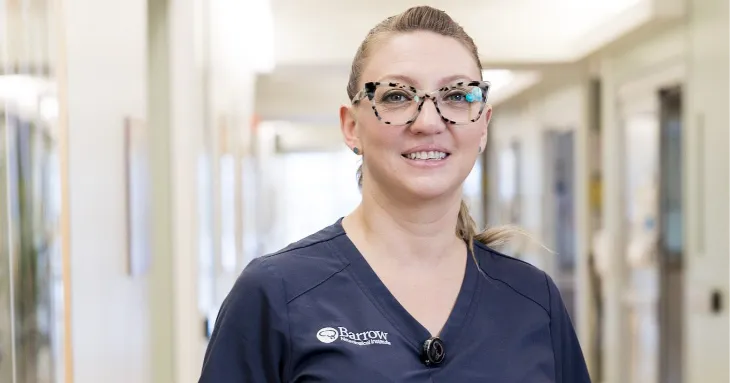
The Effect of A Neurological Training Module On The Competency of Neurocritical Care Staff Nurses
Tags: Brain EMERGENT training nurological care nurse training stroke
In this study, the competency training module had an effect in the post-test in the aspects of cognitive and affective domains only; thereby, accepting H1 and H0 was rejected. The training module did not affect the psychomotor domain. Based on the results of the study, H2 was accepted, there was no significant difference between the staff nurses’ profile with the results of the post-test; therefore, H3 was rejected. In this study, the competency training module had an effect in the post-test in the aspects of cognitive and affective domains only; thereby, accepting H1 and H0 was rejected. The training module did not affect the psychomotor domain.
Read More →
Silenced and Overlooked: The Impact of Societal Norms on Women’s Mental Health Care
This article examines the ongoing influence of societal norms and gender bias in the treatment of women’s mental health. Despite advances in medical understanding, many women continue to face dismissal, misdiagnosis, and emotional invalidation within clinical settings. Drawing on contemporary research and lived experiences, the paper sheds light on issues such as medical gaslighting and diagnostic overshadowing, emphasizing how these challenges impact trust, access, and outcomes. It calls for greater awareness among healthcare providers, particularly nurses, and advocates for a more compassionate, inclusive approach to mental health care that validates the experiences of all patients.
Read More →The Effect of A Neurological Training Module On The Competency of Neurocritical Care Staff Nurses
In this study, the competency training module had an effect in the post-test in the aspects of cognitive and affective domains only; thereby, accepting H1 and H0 was rejected. The training module did not affect the psychomotor domain. Based on the results of the study, H2 was accepted, there was no significant difference between the staff nurse's profile with the results of the post-test; therefore, H3 was rejected. In this study, the competency training module had an effect in the post-test in the aspects of cognitive and affective domains only; thereby, accepting H1 and H0 was rejected. The training module did not affect the psychomotor domain.
Read More →
A Retrospective on Nursing During the 2014 - 2016 Ebola Outbreak
The 2014-2016 Ebola virus disease (EVD) epidemic in West Africa was one of the most severe global health crises of the 21st century. Nurses, as the largest group of direct care providers, faced extraordinary risks and responsibilities during this outbreak. This document explores the multifaceted role of nurses in EVD management, emphasizing the dangers they faced, the leadership they provided, and the public’s shifting perception of their work. The document also addresses how Ebola’s transmission dynamics and containment measures affected nursing practice, and how the epidemic evolved into a complex humanitarian emergency (CHE). Through analysis of documented experiences, media coverage, and global responses. This document illustrates the essential contributions of nurses during the EVD crisis and underscores the need for better support and recognition of nursing roles in future epidemics.
Read More →
Colorectal Cancer in Younger Adults: A Growing Concern and a Call to Action
Tags: cancer symptoms colon cancer Colonoscopy Colorectal cancer Genetic testing
Colorectal Cancer in Young Adults, Early Detection Methods, Warning Signs to Look For
Read More →
More Than Evidence: How Experience and Reflection Shape My Epistemological Stance in Nursing
Tags: empirical knowledge ethical principles in nursing Nurse Education nursing epistemology Patient-centered care
This paper explores the author's personal epistemological stance in nursing, emphasizing the integration of both empirical evidence and experiential knowledge gained through clinical practice. Drawing on Barbara Carper’s four patterns of knowing, empirical, personal, ethical, and aesthetic, the author highlights how meaningful nursing care requires more than scientific knowledge; it also demands relational understanding, critical reflection, and empathy. A fictional case study is used to illustrate how these ways of knowing intersect in real-life decision-making, particularly when caring for marginalized patients. The paper ultimately argues for a holistic, patient-centered approach to nursing that honours both objective data and the lived experiences of patients.
Read More →
Patient Autonomy
Tags: healthcare ethics Informed consent Nurse-patient communication Patient autonomy Patient-centered care
An article discussing honoring patient autonomy while maintaining professional obligations.
Read More →
A Nurse has a Baby
Tags: labor nurse healthcare nurse pregnancy pregnancy
An article about having a baby from the perspective of a nurse.
Read More →
From Classroom to Chaos: A Concept Paper on Transitional Dissonance in the Nursing Profession
Tags: challenges nurse burnout Nurse Education
This concept paper explores transitional dissonance experienced by newly licensed nurses as they move from academic training to clinical practice. It identifies key factors contributing to this dissonance, including the gap between theoretical preparation and real-world clinical demands, role ambiguity, inadequate organizational support, emotional labor, cultural challenges, and rapid technological changes. The paper highlights how these interconnected issues lead to stress, burnout, job dissatisfaction, and high turnover, ultimately impacting nurse well-being and patient care quality. Understanding the causes and effects of transitional dissonance is critical for developing targeted interventions that support nurses’ professional adjustment and improve healthcare outcomes.
Read More →
Rebuilding Community and Resilience: Establishing a Wellness Committee to Support Nurses' Mental Health Post-Pandemic
Tags: menal health nurse mental health nurse support wellness
The COVID-19 pandemic significantly exacerbated burnout and emotional distress among nurses, eroding workplace cohesion and well-being. Recognizing the limitations of existing mental health resources, one nursing unit established a wellness committee focused on fostering community, inclusivity, and mental health support. This article describes the committee’s initiatives—including social events, support during local Pride parades, care packages for new mothers, and promoting wellness tools—and highlights measurable outcomes. In just the first year, the unit’s survey revealed a 25% increase in staff reporting that their mental health was being addressed and a rise in staff feeling able to be their authentic selves. These findings emphasize how grassroots efforts can play a critical role in restoring resilience and connection among nurses, contributing to better retention, morale, and patient care outcomes.
Read More →
Addressing the Global Nurse Migration Crisis: Strategies for a Resilient and Equitable Healthcare Workforce
Tags: ethical values migration nurse retention nursing shortage
This article is about the global nurse migration crisis caused by disparities and instability, which worsens shortages in poorer countries. It proposes a framework of Protection, Equity, and Collaboration to address these issues ethically and sustainably. The approach supports the UN’s goals for equitable and resilient healthcare systems worldwide.
Read More →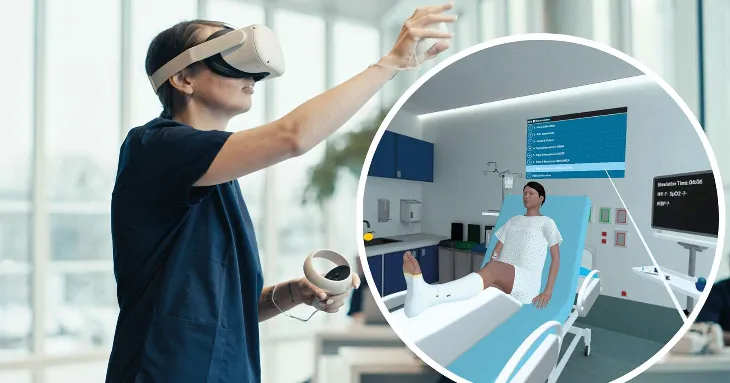
Using Virtual Reality Simulation as a Tool to Improve Clinical Competencies
Tags: Nurse Education virtual learning virtual professor
Simulation has long been recognized as an effective instructional method in nursing education. The use of virtual reality simulation as compared with traditional simulation, adds a new dimension to the complexity of simulated patient care. In this study, students’ perceptions of improved clinical competencies such as confidence, priority setting, delegation, time management, and communication were evaluated using a post simulation survey and reflective journaling. Results demonstrated an improvement in clinical competencies.
Read More →
Use of Structured Educational Programs Directed to Healthcare Providers to Improve Patients' Adherence to CKD Medications.
Tags: Kidney Disease Nurse Education public health
Chronic Kidney Disease (CKD) presents a significant public health challenge due to its progressive nature, associated comorbidities, and increasing prevalence in the United States. One of the critical barriers to effective CKD management is poor patient adherence to prescribed medication regimens. This Doctor of Nursing Practice (DNP) project aimed to assess the effectiveness of a structured educational program for healthcare providers in a South Florida medical center to improve medication adherence among CKD patients. Guided by Patricia Benner’s Novice to Expert Theory, the project utilized a pre-posttest quasi-experimental design to evaluate changes in provider knowledge and perceived confidence in managing medication adherence. The intervention included an evidence-based educational PowerPoint presentation targeting healthcare professionals—physicians, nurse practitioners, physician assistants, nurses, and medical assistants—who care for CKD patients. Participants (n = 21) completed a pretest to assess their baseline knowledge, attended the educational session, and then completed a posttest to evaluate the improvements. Data analysis showed a marked increase in posttest scores and self-reported confidence, with 81% of participants demonstrating enhanced understanding of CKD medication adherence strategies. Results support the efficacy of provider-directed educational programs in promoting adherence behaviors in CKD patients through improved communication, individualized care planning, and consistent follow-up. The project underscores the importance of providing education in addressing non-adherence medication and serves as a scalable model for other chronic disease management initiatives. Findings were disseminated to institutional stakeholders and prepared for publication to encourage broader implementation. Keywords: Chronic Kidney Disease, medication adherence, healthcare providers, educational intervention, DNP project, Patricia Benner, structured education, patient outcomes
Read More →
From Classroom to Community: Teaching Stress First Aid
Tags: first aid mental health Nurse Education Stress among Nurses wellbeing
This narrative describes an initiative to teach nursing students the Stress First Aid model to promote mental wellbeing and resilience in nurses. Students found the value in SFA, they taught older adults stress management skills they learned.
Read More →
The Challenges of a CVICU Nurse and The Toll of Burnout: The Bedside Nurse Perspective
Tags: menal health nurse burnout nurse well-being
The Cardiovascular Intensive Care Unit (CVICU) represents one of the most challenging healthcare positions due to the overall demand for exceptional clinical expertise, both in advanced clinical abilities and emotional resilience. CVICU nurses manage severe cardiac health crises while executing difficult medical interventions and making critical decisions during emotionally intense situations. Recent research shows that more than 40% of ICU nurses experience burnout, which leads to significant impacts on their personal lives and mental health, as well as patient care and outcomes. The article investigates the fundamental causes of burnout in CVICU nurses and its extensive impacts while providing actionable personal and organizational solutions to tackle this escalating problem. The elimination of burnout represents both a moral duty and the key to maintaining top-notch patient care and nurse retention.
Read More →
The Old Machine Shop
This story of The Old Machine Shop is one of the reasons why I am so dedicated to the field of Hospice Nursing.
Read More →
Cross-Cultural Nursing Leadership: A Comparative Reflection On Managing Healthcare Teams In The Philippines And Abroad
This reflective journal explores cross-cultural nursing leadership as experienced by Filipino nurses working in diverse healthcare systems—specifically in the Philippines, the United Kingdom (UK), the United States of America (USA), and the Kingdom of Saudi Arabia (KSA). Drawing from our multifaceted roles as bedside nurses, educators, and administrators, we examine the interplay between cultural expectations, leadership styles, team dynamics, and systemic structures. This reflection identifies common values, contextual differences, and lessons that can be applied to shape resilient and culturally responsive nursing leadership education in the Philippines. Through critical introspection grounded in personal and collective experiences, this journal aims to contribute to the cultivation of globally competent, ethical, and adaptable Filipino nurse leaders.
Read More →
Nurse Burnout: Am I The Only One?
Tags: mental health nurse burnout nursing
A narrative style piece commenting on burnout in the nursing profession
Read More →
Community Service: Undergraduate Nursing Students Perspectives on Participating in a RAM Clinic
An article on the experience that senior nursing students experienced while engaging in the Remote Area Medical (RAM) clinic. The senior nursing students were able to utilize their various skills, including nursing care, assessment, communication, education, and clinical judgment. The ability to interact and function as a nursing student enhanced their self-confidence and strengthened their perception of the significance of real-world community service.
Read More →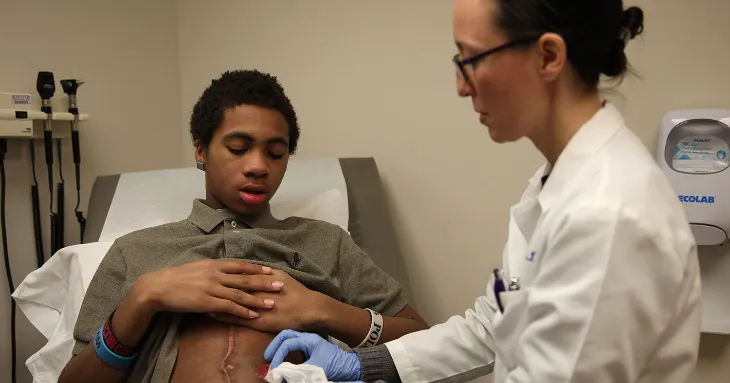
Emergency Room Nurses Gave Gunshot Victim’s Drugs To Police: No Violation of Patient’s Rights.
The emergency room nurses were not working for the police, but were following hospital protocols for gunshot victims in the E.R.
Read More →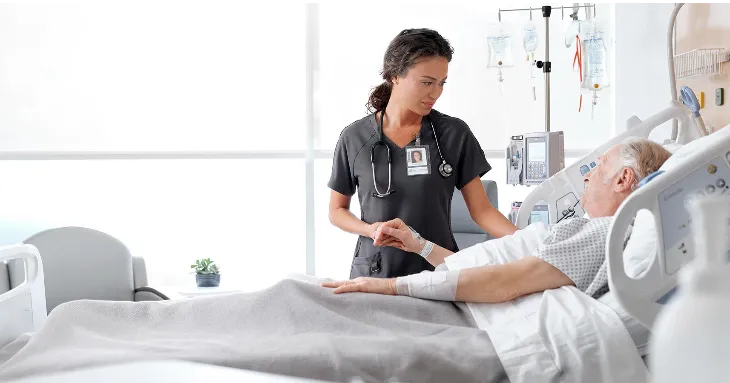
Finding Purpose in Survival: A Second Chance to Inspire Others
Sean faced heart, kidney, and respiratory failure at 55—but survived against all odds and found his purpose in nursing. His story is one of resilience, gratitude, and second chances.
Read More →
How Concept Maps Facilitate Learning in Nursing Education
Concept maps are visual tools that help nursing students organize and connect complex information. They promote critical thinking by encouraging analysis and synthesis rather than rote memorization. In both classroom and clinical settings, concept maps support deeper understanding and better care planning. They also enhance collaboration and peer learning. Overall, concept maps strengthen cognitive skills essential for effective nursing practice.
Read More →Get Published for Free
Browse by Tag
advocate aging anesthesia behavior cardiac care Case Study child children clinical compassion COVID-19 critical care death diabetes disease education emergency department end of life ethical principles ethical values ethics future of nursing health health care ICU medication mental health nurse Nurse Education nursing nursing education nursing ethics nursing faculty nursing school nursing students PACU patient care patient outcomes patient safety pediatric poem profession risk factors stress student nurse students teaching therapy treatment
Most Popular Last Month
More from RN Journal
The Challenge of MSA: Multiple System Atrophy
Views of a New Graduate Nurse: The Value of Mentorship
Elective Induction of Labor and Early Term Delivery
Reducing Lateral Violence: A humanistic educational approach
The Importance of Networking in Nursing School
So... How Can We Better Learn CPR?
Empowered approaches for Type 1 Diabetes patient care in Canada
My Teaching Philosophy
All the Hats We Wear: The Soul of a Nurse









